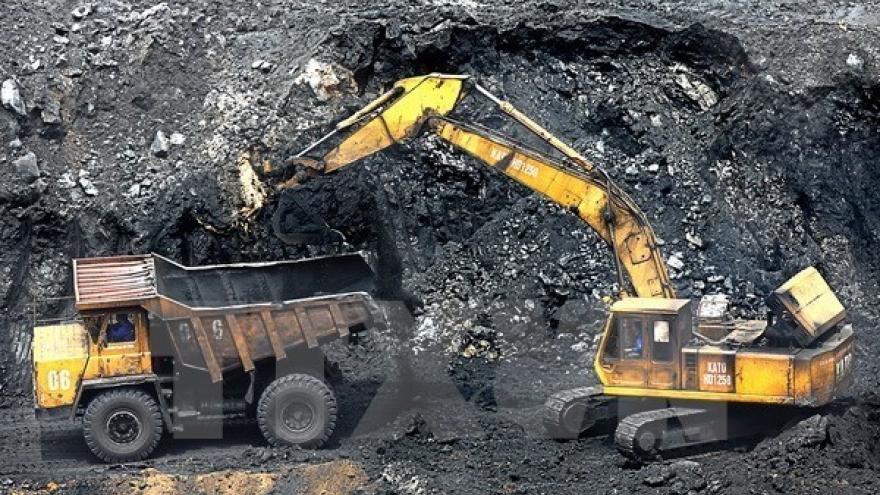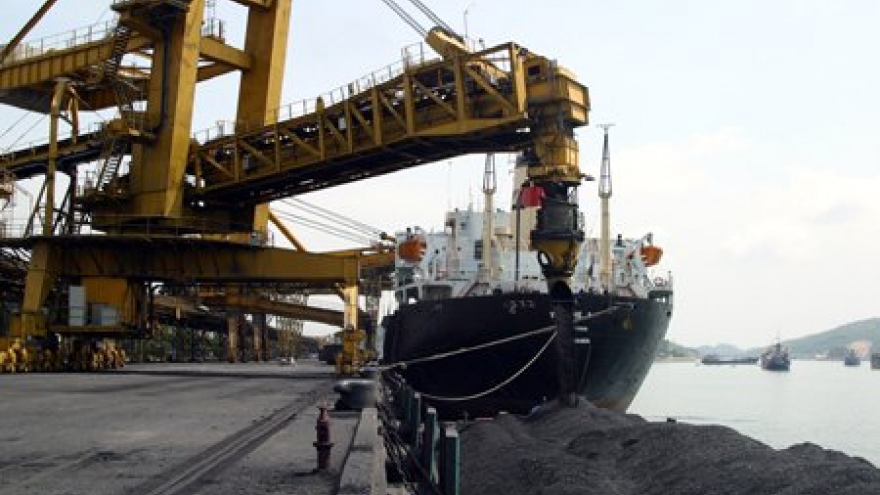Domestic coal stockpiles mount as imports surge
VOV.VN - The Vietnam Ministry of Finance has flatly rejected a proposal to lower taxes on fuel, a move that many industry experts believe would stimulate domestic sales of coal, reducing the country’s mounting inventories.
 |
As an alternative, the Ministry recommended raising the country’s annual coal export target from the current 2 million tons per annum to 3-4 million tons for the three-year period 2017-2020.
Raising the export target, said the Ministry, is a better approach to solving the problem than cutting taxes as it can specifically target getting rid of stockpiles of low quality coal without lowering general fund budget revenue.
Vietnam changed from being a long-time net exporter of coal to a net importer in 2015, said the report, principally on the back of a large influx of inexpensive foreign coal in 2015.
Not only did the imported coal sell for much less than domestically produced coal, but it was of a much better quality and more aptly filled the needs of domestic purchasers, the report continued.
State-owned mining company Vinacomin had prodded the Ministry to rollback a tax hike it imposed last July raising the national resource taxes for two different grades of coal by 3-4%, claiming that the hike had negatively impacted its domestic coal sales.
But the Ministry flat-out rejected Vinacomin's proposal, citing the government’s general fund budget concerns and the need for time to accurately assess the full impact of the newly imposed tax hike.
Meanwhile Nguyen Khac Tho of the General Directorate of Energy said the latest statistics from the General Department of Vietnam Customs showed that for the first nine months of the year the country’s cumulative coal imports jumped 147.6% on-year to 10.1 million tons valued at US$629.5 million.
Mr Tho noted the 10.1 million tons is already 7 million tons past the 3.1-million-ton import target set for the entire 2016 fiscal year.
Last year the country’s coal exports plummeted by 75.9% from 2014 to 1.7 million tons, said Mr Tho, while imports surged 123.8% to 6.9 million tons.
He said it’s the lower foreign coal prices that are driving the surge in imports, adding that the quality of domestically produced coal just isn’t there— and doesn’t match that of foreign produced coal as well.
Most of coal mined in Vietnam comes from deep reservoirs, even some as far down as 300 meters below sea level. This in large part explains why the cost for domestic coal production is so high.
The segment is also plagued with a lot of outdated technology, which results in considerable additional cost when compared to foreign miners that use newer mining technologies at a much lower cost.
In response, Vinacomin management has instructed its affiliates to cut costs, closely follow the market's requirements and strictly supervise the quality of coal and delivery schedules to stabilize production and reduce inventories, Mr Tho noted.


